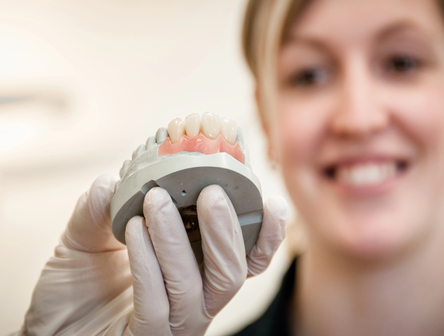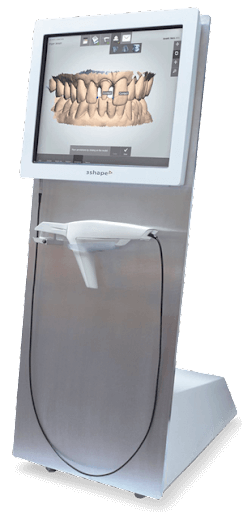Denture discomfort is a common issue, often leading patients to seek out solutions that can provide both relief and functionality. Among the available options, soft reline denture materials have emerged as a leading choice for enhancing comfort without sacrificing the denture’s fit or appearance. This innovative approach addresses the core issues of irritation and soreness, making dentures feel more natural and less intrusive.
At Next Dental Lab, we understand the importance of combining quality with affordability. Our comprehensive array of dental products underscores our commitment to supporting dentists in delivering exceptional care.
For patients struggling with denture comfort, our soft reline denture materials offer a convenient and effective remedy. These products are designed to cushion the gums, minimizing discomfort and improving overall satisfaction.
What Is the Process of a Soft Denture Reline?

A soft denture reline involves adding a new layer of soft, pliable material to a patient’s denture base. This procedure adjusts the fit, making dentures more comfortable to wear, especially for patients with sensitive gums or who cannot tolerate hard relines. The dentist starts by removing part of the existing denture lining, then fills the space with a soft, cushioning material that conforms to the contours of the patient’s mouth.
Once applied, the material needs time to set before being polished and returned to the patient. Soft relines can be done directly in the dental office, allowing for immediate adjustments. This customization is vital for ensuring a snug, secure fit that enhances comfort and dental function.
How Long Does a Soft Denture Reline Last?
Typically, a soft denture reline remains effective for one to two years. This timeframe may differ based on individual patient factors, including oral hygiene habits, the acidity of saliva, and the frequency of denture use. Over time, the soft liner may lose its elasticity or become rough, signaling the need for replacement.
Patients should be aware that soft relines are not permanent solutions. The material’s softer nature means it is more prone to wear and tear compared to harder alternatives. Regular dental visits are crucial for assessing the condition of the reline and scheduling timely maintenance.
What Materials Are Used in Soft Denture Relines?
Materials for soft denture relines usually consist of medical-grade silicone or soft acrylics. These selections are chosen for their flexibility and the comfort they provide. They create a cushioned barrier between the gum tissue and the hard base of the denture.
The chosen materials are compatible with the human body and are unlikely to irritate. They need to be resilient enough to sustain daily wear while retaining the softness that defines a comfortable denture fit. The exact material used can vary, with the dentist selecting the most suitable option for the patient’s needs.
How Does a Patient Care for Relined Dentures?
Caring for relined dentures requires attention and gentle handling. Patients should maintain a daily cleaning routine, using soft-bristle brushes and non-abrasive cleaners to avoid damaging the soft lining material. They also need to soak their dentures in a mild cleansing solution overnight to remove food particles and bacteria unless advised otherwise by their dentist.
Proper maintenance extends the life of the reline and supports oral health. Additionally, patients should visit their dentist if the relined denture feels loose or uncomfortable, and they should inform their dentist of any noticeable changes in fit or comfort during regular dental check-ups.
Advancing with Hybrid Dentures
Moving forward, the evolution of hybrid dentures marks a significant milestone in dental prosthetics. Bridging the gap between traditional dentures and dental implants, hybrid dentures offer a stable and aesthetically pleasing solution for patients. Our lab is at the forefront, crafting hybrid dentures that combine the reliability of fixed implants with the versatility of removable dentures, all at a price point that makes advanced care accessible to more patients.

